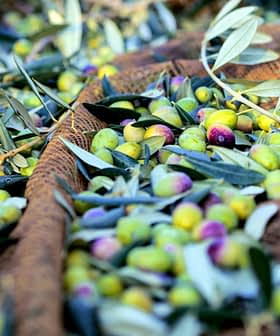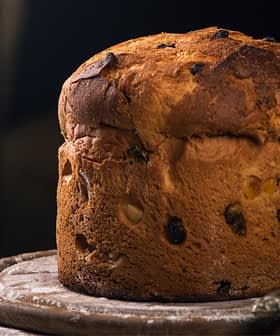Consuming High-Polyphenol Extra Virgin Olive Oil Reduces Blood Pressure, Study Finds

Consuming high-polyphenol extra virgin olive oil led to a significant reduction in peripheral and central systolic blood pressure, with no significant differences in diastolic blood pressure or arterial stiffness. The study showed that adding just 60 milliliters of extra virgin olive oil daily to the diet could lead to a clinically significant decrease in systolic pressure, highlighting the value of olive oil in the prevention of cardiovascular disease, especially in healthy individuals.
Researchers in Australia have demonstrated that consuming extra virgin olive oil that is high in polyphenols led to a “significant reduction” in two different types of blood pressure.
Peripheral and central systolic blood pressure decreased in study participants by 2.5 and 2.7 millimeters of mercury (mmHG), respectively. However, the researchers found that no significant differences were observed in diastolic blood pressure or arterial stiffness.
Our study provides new evidence that justifies and further supports the need for the revision of Australia’s national Health Star Rating system, in order to also take into consideration the proven health benefits of bioactive nutrients in foods, such as the polyphenols in olive oil.
“The practical health implications of our study are focused on the fact that the addition of just 60 milliliters (about four tablespoons) of extra virgin olive oil in the daily diet can lead to a decrease in systolic pressure that is of great clinical significance and public health importance, especially with regards to the prevention of cardiovascular disease,” George Moschonis, a co-author of the study and associate professor at La Trobe University, told Olive Oil Times.
Moschonis added that the results of this study are particularly significant as a previous study published in the Lancet demonstrated that a 10 mmHg reduction in systolic blood pressure led to a 20 percent reduction in cardiovascular disease, 17 percent decrease in coronary heart disease, 27 percent reduced risk of stroke and 28 percent decrease in heart failure.
See Also:Health NewsHowever, most participants in that study were already overweight and achieved the reduction in systolic blood pressure via pharmacological methods.
Moschonis said that what stood out about the more recent study was the role extra virgin olive oil could play in lowering blood pressure in healthy individuals.
“Contrary to the studies included in this meta-analysis [the one published in the Lancet], our intervention study was conducted with healthy participants, did not include any medication and did not require any weight loss or other major lifestyle modifications,” he said.
“The only change that our study introduced was the addition of 60 milliliters of raw extra virgin olive oil in participants’ diet, indicating that a small and easily incorporated change in the diet can produce significant decreases in blood pressure even in healthy individuals, thus highlighting the value of extra virgin olive oil in the primary prevention of cardiovascular disease,” Moschonis added.
In the study, 50 participants were divided into two groups. In one group, participants consumed a daily dose of 60 milliliters of a high-polyphenol (with a phenolic content of 360 milligrams per kilogram) extra virgin olive oil for three weeks. In the other group, participants consumed the same amount of refined olive oil, which is low in polyphenols (86 milligrams per kilogram).
After the three weeks, the participants spent two weeks cleansing their systems, not eating any olives or olive oils, before switching over to consume the other type of olive oil.
Blood pressure readings on each of the participants were taken after each of the three week periods. What researchers found is that participants only experienced the peripheral and central systolic blood pressure decrease after consuming high-polyphenol extra virgin olive oil.
Neither type of blood pressure significantly decreased in either set of participants after consuming the refined, low-polyphenol olive oil.
In the future, Moschonis said he hoped to replicate the study using individuals at higher risk of cardiovascular disease.
“The decrease in blood pressure levels could possibly be expected to be higher if the target population were patients or individuals with a high cardiovascular disease risk, but this will be the focus of future research,” he said.
Moschonis added that the results of this study hold specific importance in Australia, where the country’s Health Star Rating System grades olive oil with three to 3.5 stars out of five, depending on its quality.
By comparison, both canola and sunflower oil have higher ratings, which advocates of the system attribute to their lower saturated fat content.
“Our study provides new evidence that justifies and further supports the need for the revision of Australia’s national Health Star Rating system, in order to also take into consideration the proven health benefits of bioactive nutrients in foods, such as the polyphenols in olive oil and specifically in extra virgin olive oil where the concentration of polyphenols is higher,” Moschonis said.
“Unfortunately, in its current format the national Health Star Rating system is based only on a handful of nutrients in foods, such as their content in saturated fat, while other beneficial nutrients are completely ignored,” he added.









